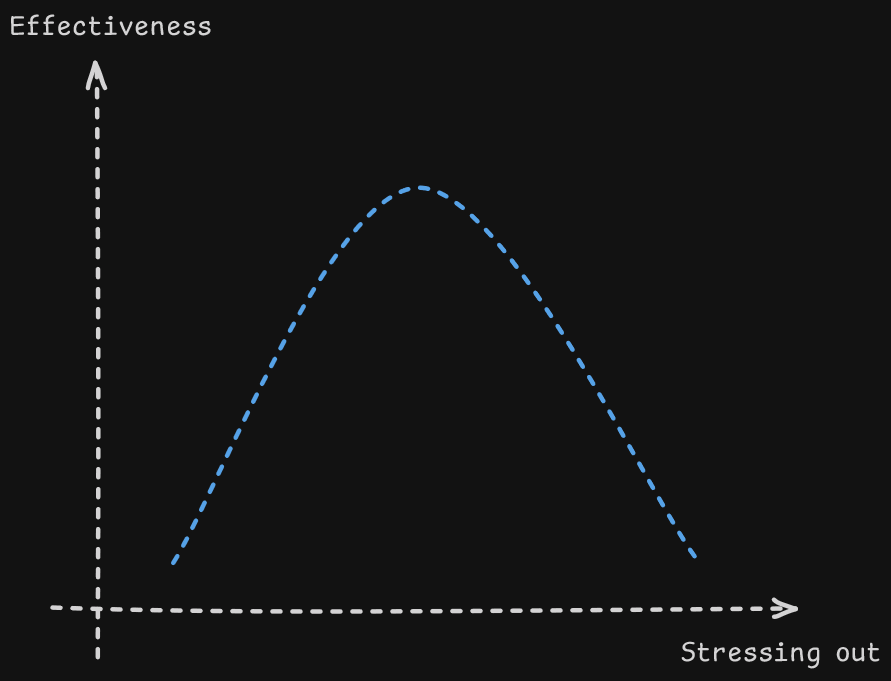A Guide to Cold Emailing
- send email to those who have cited your work and tell them someone interesting in the context they used your paper. E.g., in one paper, the author said that we suggested that achieving giga-voxel resolution via deep learning is possible. I can add that although it is possible, but given the noisiness of increasing Fourier frequencies needed for intricate design (which is one main point of our work), the solution might become computationally infeasible in a way that using the classical methods becomes a better choice.
- Send an email (check notes on your phone) regarding the name privilege.
almost every good opportunity in my research life is either the direct or secondary outcome of a cold email; two papers, two internships, and the PhD advisor.
The problem is that people stress out about cold emailing too much. either you’ll get a response or they’ll forget you ever emailed them at all.
You miss every shot you don’t take. —I head it from some guy on DoTA2 (original author is Wayne Gretzky)
Cold email types:
- Questions about research papers I’ve found interesting
- Telling someone about a project I’m working on that build on their work and asking if they have some time to give some feedback / give some pointers / discuss
- Requests to discuss someone’s paper with them
- Telling someone I really appreciate a paper or blog post that they’ve put out. This is one of my favorite things to do and I wish people do it more.
- When I was an undergraduate I did contact a few labs when applying to graduate school. This was only helpful when those labs were directly aligned with my undergraduate research topics. Otherwise, mostly got radio silence,
There’s no real plan, I’m just looking to get answers to my questions and sometimes the subsequent discussion leads somewhere interesting.
Format of emails are a function of how established I am in the sub-field of the person I’ve emailed:
What content should these emails contain?
- a clear indicator that you are familiar with the work of the person you’re emailing
- some specific questions or a specific ask i.e. how can the person help you and why are you asking them specifically as opposed to someone else?
- If you’re not particularly senior, it’s worthwhile to provide some form of credential demonstrating your actual interest in the topic. For example, a link to some code you’ve written indicating that you’re forging ahead with or without a response. Or perhaps some research ideas you’re considering that demonstrate a good understanding.
Example
Good:
- Hello, I’m an undergraduate at X. I’m interested in field X which I believe you know a lot about because of X paper that you wrote. Do you think X field is worthwhile to do a PhD in? What are some good open problems in X field? Any advice you have is appreciated.
- Hello, I’m X. I have X questions (listed below) which I think you might be able to answer because of X. If you prefer to answer them over email that’d be appreciated and I’m also happy to discuss over videochat if that’s more convenient for you.
Note
These are specific to the reader and make them think that they are likely part of a small group of people that are capable of answering your questions.
Example
Excellent:
Hello I am X. I recently read your work X and was thinking about pursuing the following [well thought out follow up project]. If you have any feedback on whether this project makes sense, tips from your prior work on likely difficulties I might encounter, or would be willing to talk to me a bit about it, I’d appreciate that!
Note
- The author is familiar with the work and is actually interested enough to read a paper carefully
- The author understood the work well enough to think of interesting extensions of it
- The ask is specific.
When writing such email, maybe you haven’t understood the work at all and it’s now obvious to the recipient that you don’t understand. I’d say not to stress out too much about this. You understand what you understand, you can’t change that except by time and work, and how someone responds to your lack of understanding is often a good measure of how kind they are.
Success
how someone responds to your lack of understanding is often a good measure of how kind they are.
In other words, one of the best ways to find supportive people is to in fact fail. So, going extreme ways and being stressed about cold emails in fact can do worse than good.
 fig 1: (my take) the relation between stressing out about an email and its effectiveness, considering all aspects.
fig 1: (my take) the relation between stressing out about an email and its effectiveness, considering all aspects.
Quick addendum: some element of this is totally privilege. It’s pretty well established that people with names like mine get better responses than people with names not like mine. I’m not sure what the solution is (outside of solving racism) and am quite interested if anyone has some good ideas here.